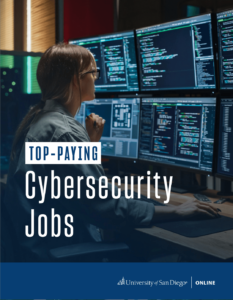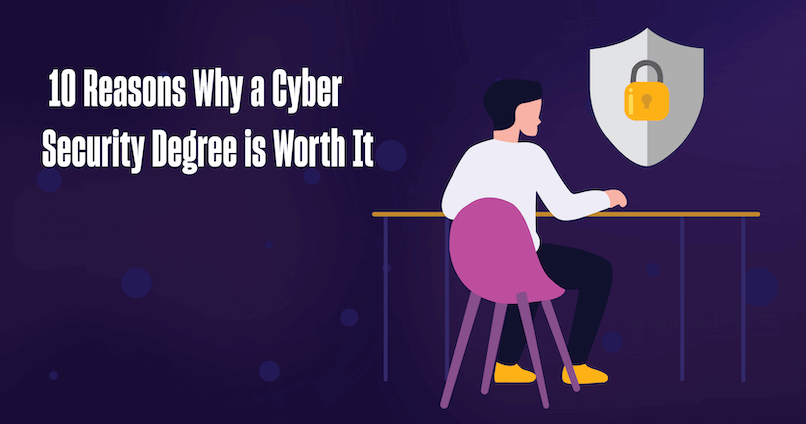The number of cyber security job openings around the globe is staggering. In 2014, CISCO estimated that there were 1 million unfilled cyber security jobs worldwide. And that number isn’t projected to get any better moving forward, as cyber criminals become more sophisticated and the cyber security talent shortage only intensifies.
In fact, according to Michael Brown, CEO at Symantec, demand for cyber security professionals is expected to rise to 6 million globally by 2019. And according to CSO, worldwide spending on cyber defense is expected to exceed $1 trillion between 2017 and 2021. In today’s digital era, the cyber security talent shortage has arisen as a major threat to individual, corporate and national security alike. The federal government and other public agencies may be feeling the pain most acutely as they struggle to compete for talent due to their slow hiring processes and traditionally lower pay [than the private sector]. So how did we get here? Why are there so few professionals available to fill the lucrative and plentiful cyber security jobs open around the world? And perhaps most importantly, how do we eliminate the talent shortage in this critical area of security? Both answers may be found in academia.
Most Universities Are Failing to Adequately Prepare Cyber Security Professionals
As cyber crime has intensified in both scale and sophistication, academia has struggled to keep up. Not only do today’s cyber security professionals need a high level of education but they also need to possess a strong understanding of 21st century cyber criminals, their methodologies, tools and constantly evolving strategies. Unfortunately, the majority of cyber security undergraduate and master degree programs available today offer an outdated approach to information security degrees that leave their graduates with a gaping skills gap once they enter the workforce. As The Hill wrote,
“Conventional approaches to cybersecurity training and certification are not keeping pace with the reality of today’s fast-changing and complex technology landscape. Traditional approaches to security training need immediate reexamination, and we must quickly and aggressively boost efforts to educate a new generation of cybersecurity experts.”
After conducting a survey of 121 top ranked universities and their undergraduate computer science programs, CloudPassage concluded that U.S. universities are failing when it comes to cybersecurity education. They noted in their analysis:
“The American education system is failing computer science students by de-prioritizing cybersecurity training. Universities are inadvertently contributing to the lack of cybersecurity readiness in the U.S. by failing to teach students how to implement security thinking and awareness into all new code design, development, and testing. Given the increasingly complex nature of today’s threat landscape, security can no longer be added on after new products and innovations are delivered to market. Cybersecurity training must be a graduation requirement for all computer science programs.”
Not only have the majority of universities failed to prioritize 21st century cyber security education, but high schools have also fallen short in promoting cyber security as a career path. A large majority of high school students are unaware that a career in cyber security is even a possibility and many high schools don’t offer any classes or programs in the discipline.
Raytheon-NCSA, 2015
To compound the problem, women are severely underrepresented in the field, making up only 10 percent of the information security workforce. This means that employers struggling to fill critically important cyber security roles within their organizations are drawing from only half of the potential talent pool.
Solving the Cyber Security Skills Shortage
In order to solve for the severe shortage in cyber security talent around the globe, cyber security education needs to be overhauled and reprioritized and women must be encouraged to enter this largely male dominated field.
Recently, CISCO announced that it would be investing $10 million in a global security scholarship program to train, mentor and certify prospective cyber security experts in an effort to close the talent gap.
This year the White House expanded its scholarship for service program by establishing the CyberCorps Reserve program and has invested in developing a Cybersecurity Core Curriculum — for graduates hoping to join the Federal Government — and strengthening the National Centers for Academic Excellence in Cybersecurity Program. The President’s 2016 plan also outlined an initiative to enhance student loan forgiveness programs for cybersecurity experts. And even more recently the Obama administration unveiled a federal security workforce strategy with four key goals, the first of which is “expanding the cybersecurity workforce through education and training.”
And a number of organizations such as the SANS Institute have launched programs aimed at propelling women into the cyber security field.
With the massive cyber security talent shortage posing a real and growing threat, more is being done to try and close the cyber skills gap and encourage millenials and women to enter the field. However, with so many jobs unfilled, rapid technological advances, and our society’s increasing reliance on technology coupled with the increasing sophistication of cyber crime, closing the cyber security skills gap is no small feat.
That’s why the University of San Diego has created two 21st century cyber security master degree programs — the Master of Science in Cyber Security Engineering and the Master of Science in Cyber Security Operations and Leadership. Both programs are academically rigorous and focused entirely on modern cyber security mitigation with an emphasis on teaching students how to become effective lifelong learners — a skill of immense importance in the ever-evolving world of cyber crime and security. If you would like to learn more about studying with USD and helping to fill the cyber security talent gap, speak with an admissions advisor today.




